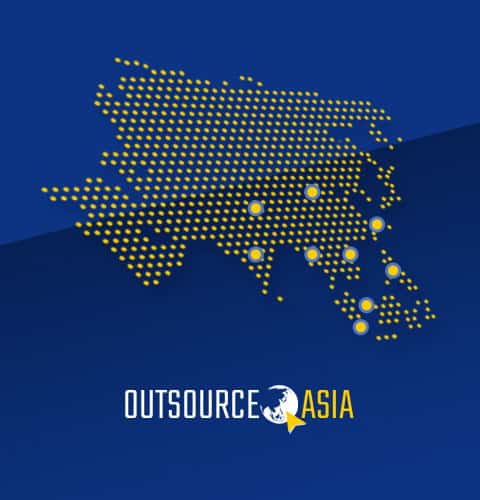
4 Items You Need in Your Checklist When Finding an Outsourcing Partner
Your business can benefit from outsourcing in a variety of ways. It allows you to focus your energy and resources on generating more income, while saving more money due to lower operational and labor costs. A team that is outsourced will cost less than one that is in-house. Additionally, outsourcing lets you tap into a global talent pool. You can rest assured that your designated tasks will be completed by competent professionals willing to exceed your expectations. Data security and advanced infrastructure capabilities are also noteworthy advantages. These factors will assist your business in achieving its growth and expansion goals.
Selecting the right outsourcing partner is a critical step for you and your company. Therefore, choosing outsourcing services requires a thorough assessment. Pay attention to these details in particular:
1. Reduced costs, expertise, and infrastructure
Costs can be significantly reduced through outsourcing. Consider the expenses involved with hiring, training, managing, and retaining employees. It is a substantial investment, and sometimes businesses cannot expand beyond their current size because they lack the funds to hire more employees. It can be cost-effective to expand resources by outsourcing, especially if the resources are only needed during peak times. Additionally, outsourced resources possess significant expertise since they are constantly working within that field. The outsourcing service provider also owns the infrastructure. It also saves businesses money by saving on the costs associated with setting up, maintaining, repairing, and upgrading in-house systems.
How can you contact outsourcing partners when the need arises? Can the outsourcing organization offer technical support and assistance? Be sure to do your research on the outsourcing vendor in order to determine whether they understand your business needs and are able to meet them. Assess the responsiveness and support of the back-end.
2. Maintaining timeliness
Businesses can stay on schedule with outsourcing. By having access to resources and reliable infrastructure, errors are reduced and often eliminated, allowing for timely deliveries and better quality.
Regardless of its quality, work that is not delivered on time loses significance. Timely delivery is equally important as striving for perfection.
Choose vendors who can deliver results on time. As part of this process, quality options are evaluated, benchmarks are established, and systems to ensure deadlines are met are evaluated.
3. Tech capabilities and infrastructure
For small and medium-sized businesses, technology can be a costly necessity. In outsourcing, businesses can access the latest technology easily and without heavy capital investment by relying on the IT infrastructure of the provider.
Communicate with the intended vendor several times if necessary, to ensure their capabilities match your business requirements. Ask about storage and backup capabilities, as well as other important areas. IT system maintenance and troubleshooting are handled by the provider, so businesses can access advanced technology.
4. Security and reliability
The outsourcing process raises concerns about security and reliability, especially when it comes to data and information exchange. A robust security system can alleviate most of these fears while enhancing data security and information safety.
Business requirements should be communicated clearly. Test out outsourcing partners‘ capabilities with respect to your own business through an initial pilot or demo session. It can help you understand how well a potential vendor aligns with your business requirements, including those related to data security and information safety.
In order to reduce risks and find the best outsource fit for your job, here’s a cheat sheet of the most important questions.
Do you have any specific needs?
For further discussion and approval by top management in your company, you should prepare the following information on the project in question:
- The scope of the project (including a detailed description of the work to be done and the way it should be done)
- Service level expectations and expectations evaluation criteria (how do you judge the outsourcing company)
- Detailed specifications (on contractual non-standard requirements; copies of the contract or any documents that explain how your relationship will be governed)
- Requirements, wishes, and expectations of the Project Team
How does your potential outsourcing partner work?
Once you have specified your specific needs, you need to analyze your potential outsource partner; this will allow you to discover the company’s culture, business model, employees, management, technology, solutions, success, and security and ultimately determine if they are a good fit. Check out this cheat sheet:
- Industry, name, address, years in business, etc.
- Work experience: on projects related to your field
- Details about the tech setup: development tools, methodologies, preferred architecture, databases, etc.
- A highly detailed explanation of the implementation phases and timetable, the checkpoints, and the change of control handoff.
Information related to the implementation of the project
Team members
- Size & structure proposed
- Stages of ramp-up (cost and time)
- Project team expertise
Questions related to management
- Describe the composition of a dedicated team. Who are the members of the team and what are their responsibilities?
- How do escalation procedures work?
- How will senior management participate in planning, development, and other aspects of this account? Which options are available?
- How much experience does the management team have?
- Describe the implementation team and its background. Is the implementation team also responsible for ongoing service?
Questions related to the team
- How are your employees trained?
- What are your methods for keeping up with the latest industry standards and knowledge?
- Is it possible to scale up quickly? How long will it take? What would the process look like?
- Is any work on the project performed by subcontractors?
Taking security measures
- How do you protect my company’s intellectual property in terms of information and data?
- Are all legal and technical measures in place to guarantee our IP’s security and confidentiality?
- What was the last technological upgrade you had?
- Is there anything you outsource yourself?
Ownership of IP
- Code, processes, hardware, licenses, etc., are owned by the company.
- The right to intellectual property
Quality Assurance
Assure quality results. As a proof of the quality of its services, the partner should have standard industry certificates.
- How does the company ensure quality and customer satisfaction in the field?
- During the lifecycle of a project, what are the standard quality deliverables?
- Provide details about the company’s reviews, tests, and satisfaction measurements
Technology
- List the software domain, applications, and infrastructure expertise of the company (e.g. database, networking, driver development, deployment technologies, Web, etc.).
- Describe your company’s software environment, such as databases, application servers, etc.
- Are you in partnership with industry leaders in software? (i.e. Microsoft, IBM, etc.)
- In terms of lines of code, what are the largest software projects the company has developed recently?
- How do you author code, gather and report code and quality metrics, track defects, and manage change in your software lifecycle?
Creating a cooperative structure
Selecting an outsourcing partner involves determining how you will collaborate: structured, efficient, or flexible, collaborative, interactive. It is essential to maintain a good working relationship. It doesn’t matter how good your contract is, if your relationship isn’t working, it will be worthless, so we suggest you discuss the details of the relationship in advance. If there are working procedures determined for the outsourcing partner, it would be wise to check them out. Discover which process approach is best for your project and will facilitate easy collaboration and communication during the collaboration.
Cost
Clearly defining the financial terms is essential to avoid hidden costs, cover all payment schedules, and address taxing concerns. Flexible pricing might be tempting, but you should not let price dictate your outsourcing relationship. You should discuss the following issues with your potential partner:
- Project pricing models proposed and applied
- Any hidden costs, exception costs based on performance metrics, and the cost of the agreement
- Accounting for time
- The management of milestones
- Schedule of payments
- The tax system
The idiom “devil is in the details” applies quite well to the concept of a good request for proposals, but make sure not to overdo it. Choosing and asking for information that will be useful for the project’s cooperation is the goal. You should narrow down your list of potential outsourcing partners to a shortlist after a successful selection.
Partner with the Right Outsourcing Company
With the advent of technology, businesses are no longer restricted to working with professionals in their immediate vicinity. Regardless of where you are in the world, you can now work with talents around the world.
Knowing what to look for in an outsourcing partner is the key. Check off all these items, and you’re set.
What criteria do you employ to choose the perfect outsourcing partner? If you need help in finding the right outsourcing partner, book a FREE APPOINTMENT with Outsource Asia experts today.


